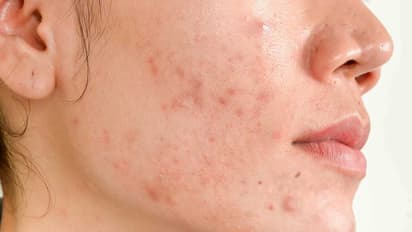Tips to reduce acne scars and brighten your skin
Published : Nov 08, 2020, 04:24 PM IST
Atrophic acne scars occur because of excessive inflammation from the acne, which creates a hole on your face.
Explore the latest Lifestyle News covering fashion, wellness, travel, Food and Recipes, and more. Stay updated with trending Health News, fitness tips, and expert insights to inspire your daily living. Discover personalized lifestyle trends that keep you stylish and informed. Download the Asianet News Official App from the Android Play Store and iPhone App Store for everything that adds value to your everyday life.
